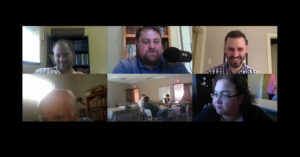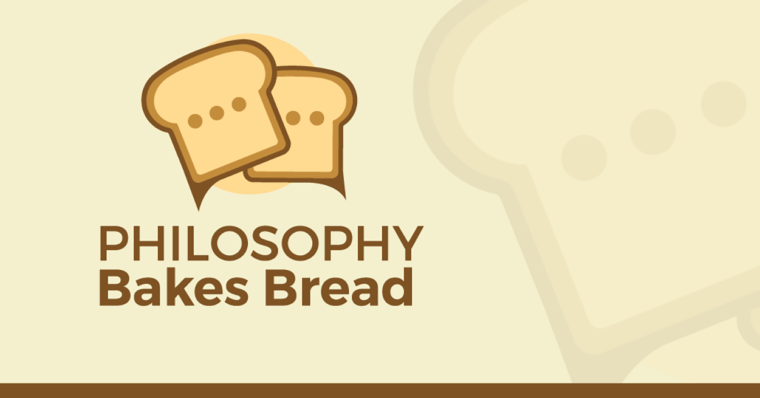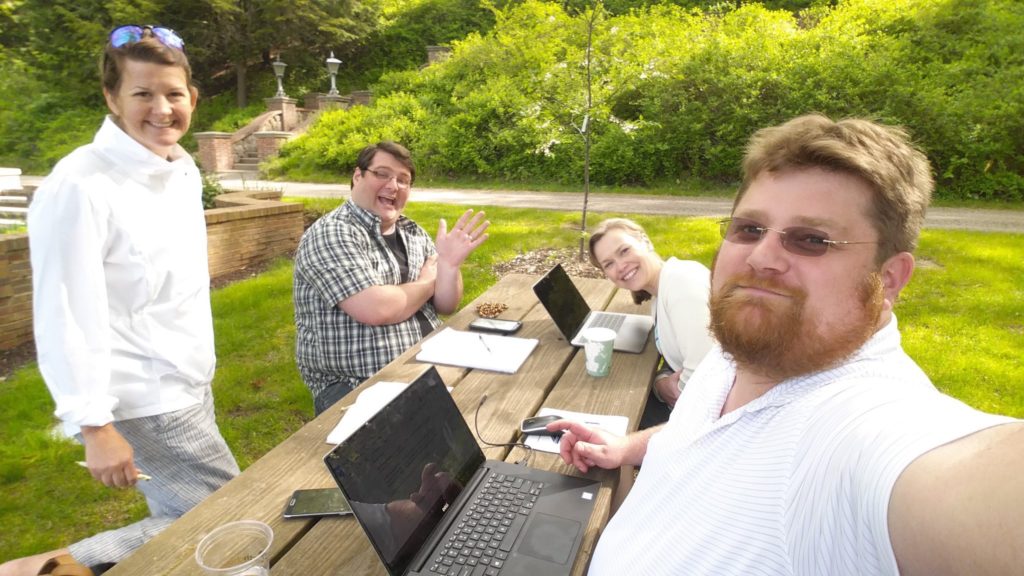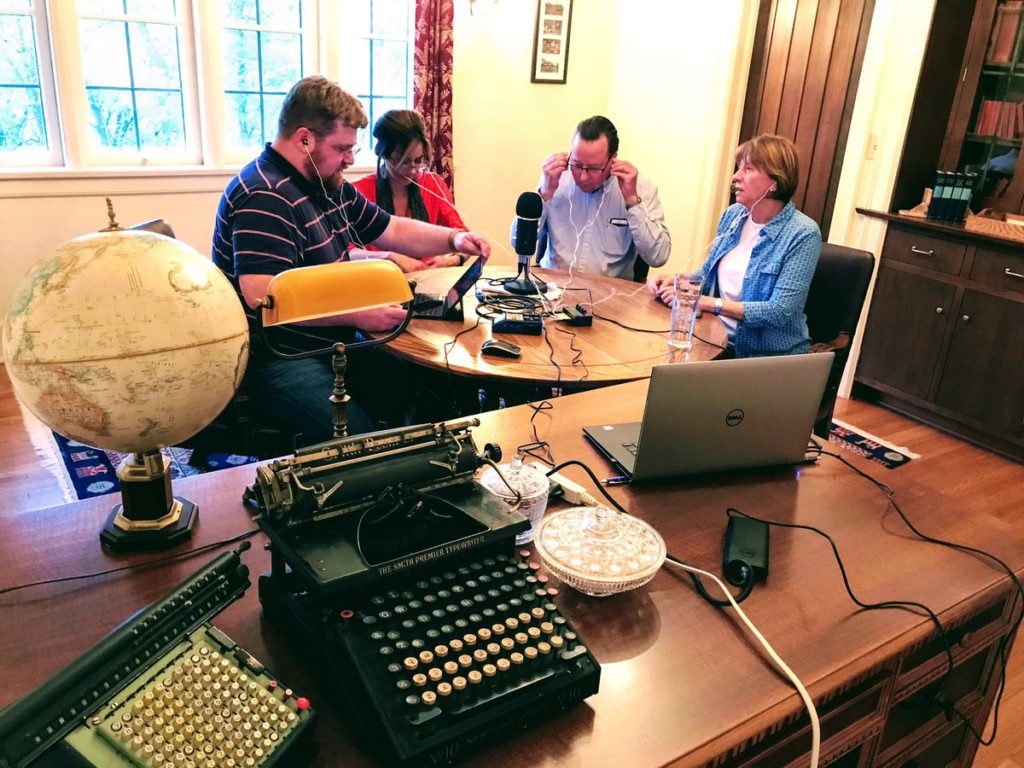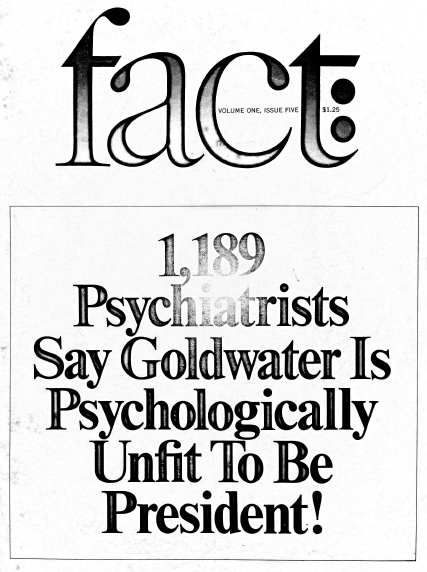What do all these statements have in common?
- “Republicanism is a consequentialist doctrine which assigns to government, in particular to governmental authorities, the task of promoting freedom as n0n-domination.” — Philip Pettit, Republicanism: A Theory of Freedom and Government
- “Of course governments may delegate … to private entities, but in the end it is government, meaning the society’s basic political structure, that bears the ultimate responsibilities for securing capabilities …. . The Capabilities Approach … insists that all entitlements involve an affirmative task for government: it must actively support people’s capabilities, not just fail to set up obstacles. … Fundamental rights are only words unless and until they are made real by government action.” — Martha Nussbaum, Creating Capabilities: The Human Development Approach
- “Justice is the first virtue of social institutions, as truth is of systems of thought. A theory however elegant and economical must be rejected or revised if it is untrue; likewise laws and institutions no matter how efficient and well-arranged must be reformed or abolished if they are unjust.” — John Rawls, A Theory of Justice
- “The free man will ask neither what his country can do for him nor what he can do for his country. He will ask rather ‘What can I and my compatriots do through government’ to help us discharge our individual responsibilities, to achieve our several goals and purposes, and above all, to protect our freedom? And he will accompany this question with another: How can we keep the government we create from becoming a Frankenstein that will destroy the very freedom we establish it to protect?” — Milton Friedman, Capitalism as Freedom
These authors disagree about what the government should do and what powers it should have. Friedman wants as little government as necessary to protect a certain kind of freedom. Nussbaum and Rawls would assign the state the powers it needs to guarantee a range of social outcomes. Pettit starts with a particular conception of freedom and concludes with an argument for an assertive state.
But all agree that justice means getting the role of the government right.
One objection to this shared premise is that no government alone can determine whether people experience justice or injustice. Amartya Sen begins his book The Idea of Justice with a quote from Great Expectations (“In the little world in which children have their existence, nothing is so finely felt and perceived as injustice”) to support the point that non-state actors–in Pip’s case, an older sister–can be just or unjust in ways that no state would be able to determine.
I agree, but my objection is different and (I think) more radical. All the books quoted above are about justice, but their authors and readers are not governments. Instead, these books are written by people for people. People can adopt views of what governments should do, and sometimes people influence governments. But individual people–even dictators–cannot directly make governments either just or unjust. The question for these authors and their readers should be: What must we do?
From that perspective, governments do enter the picture, as do families, markets, customs, religions, ecosystems, laws of nature, and many other tools and constraints. The question for us is not how each of these things should ideally work (if so, I’d favor laws of nature that guarantee us all perfect happiness forever), but rather how we should deal with the constraints and opportunities that confront us.
In particular, the governments that we deal with differ greatly. Some of us live in Denmark; others in North Korea or Bukina Faso. All the authors cited above would agree that Denmark’s government is better than North Korea’s, but that conclusion has limited value for residents of either country. Further, citizens of Denmark can fine-tune the justice of their government’s policies by supporting the political parties that best reflect their views. In North Korea (because of tyranny) and in Burkina Faso (because of poverty), that approach to improving the world isn’t really available.
My objection is not that governments should play a more limited role than they play today or than some theorists recommend. As an individual voter, it happens that I would support more assertive government. My objection is to treating the question, “What is a good government?” as an answer to the existential question, “What should I do as a citizen?” Apart from voting for the party that recommends my favorite size and type of government, what am I to do?
I’d venture an analogy to a family of theological views. For many theists, God is the Unmoved Mover, ultimately responsible for everything but not subject to being changed. Our stance toward God should involve such virtues as hope and faith. We can pray for certain outcomes, and we can be confident that divine choices will be just. We can ask what God is likely to do, given that God is just. We cannot, however, choose how God will act.
Likewise, in all the political philosophies cited above, the state is the unmoved mover of a system of justice. Unlike God, a state can either be good or bad; it can merit admiration or criticism. And we can debate whether the state should be more or less powerful (in contrast to God, Who is all-powerful). But these theories all suppose that the question of justice is: What is the ideal state? This question resembles the theological question, What are the attributes of God? It is a matter for analysis and inquiry, but not a choice.
Of course, everyone realizes that people make and change governments. The modern Danish state didn’t arise spontaneously; Danes made it and sustain it. They have also made the Danish language and economy and the physical layout of Danish towns and the countryside. But the strategies and ethics of citizens’ action are sidelined in all these political philosophies–even in Friedman’s libertarianism. He wants the state to do little, and private actors to do what they want; but that’s still not a theory of how we can accomplish justice. Again, if we are Danes who agree with Friedman, we can vote for classical-liberal candidates; but if we are North Koreans, Friedman’s ideals are empty.
How did a strategy for influencing the world become available in Denmark that is absent in North Korea? Because of the past behavior of people, both inside these countries and beyond.
Perhaps political philosophers focus on the state because they believe that blueprints of just political orders influence history. Without Locke, no American Revolution; without Rousseau, no French Revolution; without Marx, no Russian Revolution. The social impact of abstract philosophy is a large question on which I claim no special expertise. However, my general premise is that the Owl of Minerva flies at dusk and doesn’t see all that well. Locke writes after the actual English Revolution of 1688 and tries to make theoretical sense of it. He has some influence on the American framers, but they have many other influences as well, including their hands-on experiences in colonial government. Likewise, Robespierre may have carried his copy of Rousseau around with him–and Lenin, his Marx–but the actual revolutions that they led didn’t resemble these blueprints all that well. Not to mention that most sustainable change doesn’t occur during revolutions at all. It reflects slow, cumulative, experimental adjustments that are theorized after the fact.
Another reason that most political philosophers focus on the state rather than people may be that the actions of citizens appear to be theoretically uninteresting. Action is a matter of praxis, and the only question is empirical: Given the actual circumstances, what will work to move the society toward justice? That’s a question for strategists and empirical students of activism, lobbying, elections, social movements, revolutions, and so on, but not for political philosophers.
This is where I dissent. When we set out to change the world, we must decide what is right for us to do under the circumstances. The main way to test our answers to that question is to discuss them with other people. We must also coordinate our actions to increase our odds of changing the world. Unless we have already coordinated with some other people, we probably lack a venue in which to deliberate, because a deliberation is itself a shared activity, and it almost always takes place within an organization of some kind that we must sustain.
Deliberating and coordinating action generate relatively consistent classes of problems. They are hard problems, yet some groups of people have solved them. These problems are just as conceptually and ethically complex as the problem of designing a good state. But they are more pressing for us, because we can deliberate and coordinate, but we cannot implement our ideas of a good state. The only way that states will get better is if people (including those who work in and for states) deliberate and coordinate better. And–while we are at it–we can also change cultures, markets, religions, and even ecosystems. Theorizing that work is the task of Civic Studies.
See also: Ostrom, Habermas, and Gandhi are all we need; Habermas, Ostrom, Gandhi (II); new book–Civic Studies: Approaches to the Emerging Field; and The Good Society symposium on Civic Studies

 In the sciences, co-authorship is normal. In the humanities, it is uncommon. In philosophy, it is almost non-existent. (
In the sciences, co-authorship is normal. In the humanities, it is uncommon. In philosophy, it is almost non-existent. (
